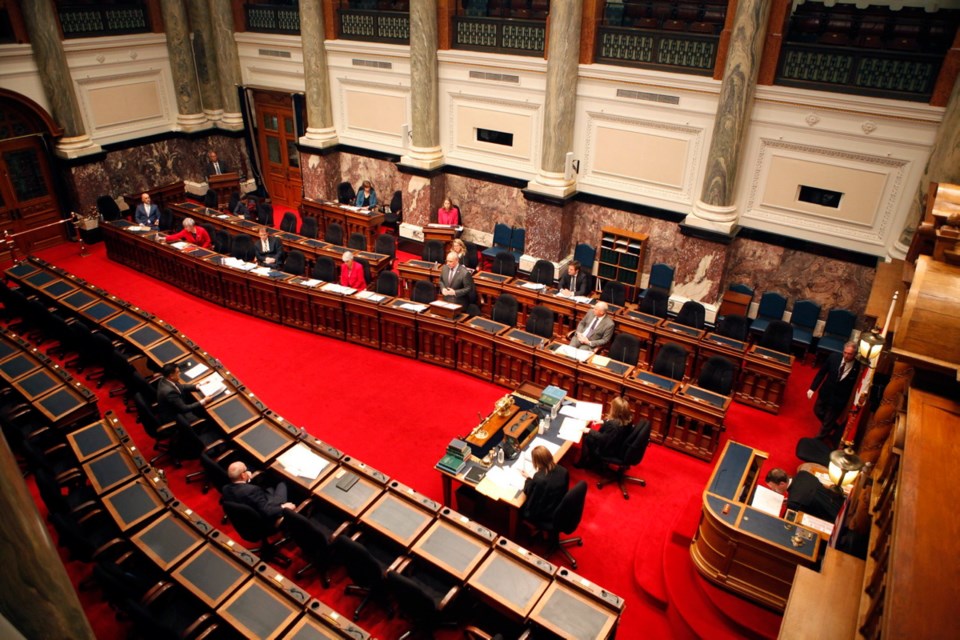Finance Minister Carole James gave us an update Tuesday on the province’s economy and finances. Though we had been led to expect bad news, her statement was nevertheless deeply troubling, and in more ways than one.
B.C.’s economy is projected to decline 6.8 per cent in 2020. Employment will shrink by close to 10 per cent, retail sales by 15.9 per cent and residential property sales by a whopping 27.6 per cent.
The minister holds out better hope for next year, although uncertainties abound. But if the COVID-19 outbreak falls away in 2021, the economy might expand by 3.1 per cent and employment by 4.4 per cent, though both of these recoveries would leave us far short of pre-COVID levels.
Likewise, retail sales are estimated to rise 8.6 per cent next year, and housing sales by 9.3 per cent, although here again these are well below the pre-COVID numbers.
The impact on James’ budget is devastating. She foresees a deficit this year of $12.5 billion, as against her original forecast of a small surplus.
Revenues are off $6.3 billion, and spending will increase by more than $5 billion. As a result, taxpayer-supported debt is expected to reach $61.9 billion, up from the February budget forecast of $49.2 billion.
And while the minister offered no insight into what next year’s bottom line may look like, at this stage it must be feared another hefty deficit lies in wait.
Yet disturbing as this is, we should also be concerned at the way our legislature has been sidelined.
First, James gave her statement to the media rather than on the floor of the house, where circumstances demanded it be made.
The minister might argue that it is traditional for quarterly economic and financial updates to be provided in this manner. And that is true.
But on past occasions, the legislature had already been given the opportunity to see and debate the government’s plans. That has not happened here in any meaningful way.
As a longstanding rule, when the budget is first tabled, the legislature approves two-twelfths of the total. This allows the work of government to go forward while the remainder of the document is examined. It’s not unusual for changes to be made during this scrutiny, when deficiencies are revealed.
However, on March 23, at the onset of the COVID-19 outbreak, James threw over this important precedent and asked the house to approve nine-twelfths of the budget that same day.
In effect, spending and taxation plans, totalling $90 billion, went through on the nod. The government’s entire capital budget of $8 billion was likewise summarily approved. So too its loans and financing requirements.
James then asked for an additional $5 billion in spending to support COVID-19 fighting measures. This also was passed, again with no meaningful debate.
In all, the house devoted just 15 minutes to a package that entailed the raising and spending of more than $100 billion.
There was a perfunctory discussion earlier in the day, but next to no details were revealed by the minister. The Opposition Liberals agreed to this, hoping James would submit her plans to scrutiny in the days ahead.
That hope evaporated Tuesday, at least for the present, when the minister sidestepped the legislature.
The full extent of the COVID-19 outbreak was both unforeseen and potentially ruinous. However, it is precisely at such times that more care is needed, not less. This is when the legislature matters most.
Yet our MLAs have spent the past few months gamely plowing through the original 2020 budget document, ministry by ministry. This has been a waste of time. It is unlikely those spending plans, long since overridden, bear much resemblance to reality.
Here, too, we see the legislative assembly treated as an irrelevance, while the people’s business is conducted elsewhere.



